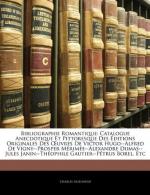|
This section contains 3,937 words (approx. 14 pages at 300 words per page) |

|
SOURCE: “Vigny's Stello and Existential Freedom,” in Nineteenth-Century French Studies, Vol. 8, Nos. 1-2, Fall, 1979, pp. 37-46.
In the following essay, Nugent interprets Vigny's Stello as a romantic and existential revolt against rationalism.
Vigny's Stello is significant from three points of view: biographical, literary, and philosophical. Clearly the three are interrelated; the first two have frequently been discussed. In 1831-32 Vigny went through a period of self-examination and self-questioning, going from a sense of immaturity to one of maturity.1 This doubt and anguish found a parallel shift in Vigny's writings from a Romantic lyricist to a philosophical poet; from a historical novelist to one of ideas; from Romantic idealism to Stoic realism. The shift further reflects a contemporary dilemma between poetic idealism and social concern, between spiritualist psychology and a materialistic one resulting from an evaluation of rationalism.2 The dilemma arose at a time of failure of political idealism...
|
This section contains 3,937 words (approx. 14 pages at 300 words per page) |

|


